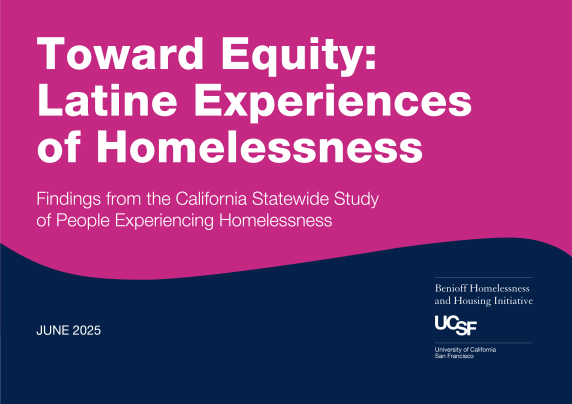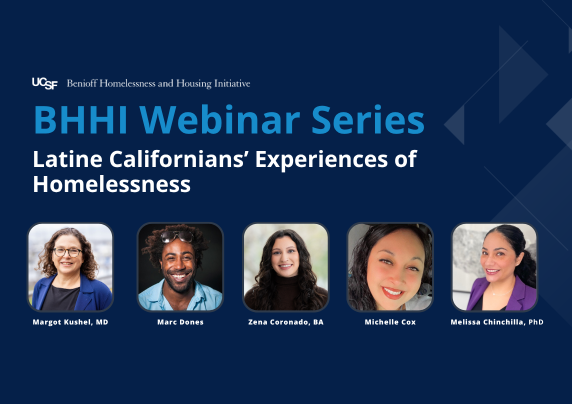New UCSF BHHI Report Examines Latine Californians’ Experiences of Homelessness
SAN FRANCISCO (June 11, 2025) – The University of California, San Francisco Benioff Homelessness and Housing Initiative (BHHI) today released a report examining the experiences of Latine Californians experiencing homelessness and offering recommendations for policymakers and practitioners.
“Anti-Latine racism, a chronic shortage of affordable housing, and exclusion from key safety net programs combine to create deep vulnerabilities to homelessness for Latine Californians,” said Kara Young Ponder, PhD, former BHHI Director of Community Engagement and Racial Justice and lead author of the report. “Our findings show that Latine Californians experience homelessness in ways that are deeply shaped by systemic discrimination and structural inequities.”
Margot Kushel, MD, senior author of the report, emphasized the urgent need for tailored, equity-centered responses: “The pathways into and through homelessness for Latine Californians are in many ways similar to all Californians experiencing homelessness, but have distinct features. The solution to homelessness is to increase access to affordable housing and provide tailored support services. In addition to these, solutions to Latine homelessness must include culturally responsive services, family-centered interventions, and removing systemic barriers to housing and vital supports.”
Toward Equity: Latine Experiences of Homelessness is based on survey data and in-depth interviews from the California Statewide Study of People Experiencing Homelessness (CASPEH), the largest representative study of homelessness in the U.S. since the mid-1990s.
The full findings and recommendations from the Latine Californians’ Experiences of Homelessness report are available here.
Key findings include:
- 35 percent of adults experiencing homelessness in California identify as Latine.
- Latine adults experiencing homelessness are younger, with a median age of 42, lower than members of other racial groups.
- Nearly half (48%) were in their first episode of homelessness. Among those who completed the survey in Spanish, 71% were.
- Half (52%) entered homelessness from housing without a formal lease, meaning they were doubled up, living without the legal protections of a lease. This was especially pronounced among those born outside the U.S. (70%).
- Seventy-nine percent spent most of their nights in unsheltered locations: either outdoors (54%) or in vehicles (26%).
- One-third (33%) of Latine adults had minor children not currently staying with them; 24% reported being separated from their children because of homelessness.
- Nearly all (93%) lost their last housing in California, and most (78%) were still in the same county where they lost housing.
The Report includes recommendations policymakers and programs should consider to better support Latine Californians experiencing homelessness.
We thank the California Health Care Foundation (CHCF) for supporting this work.
Related Resources



